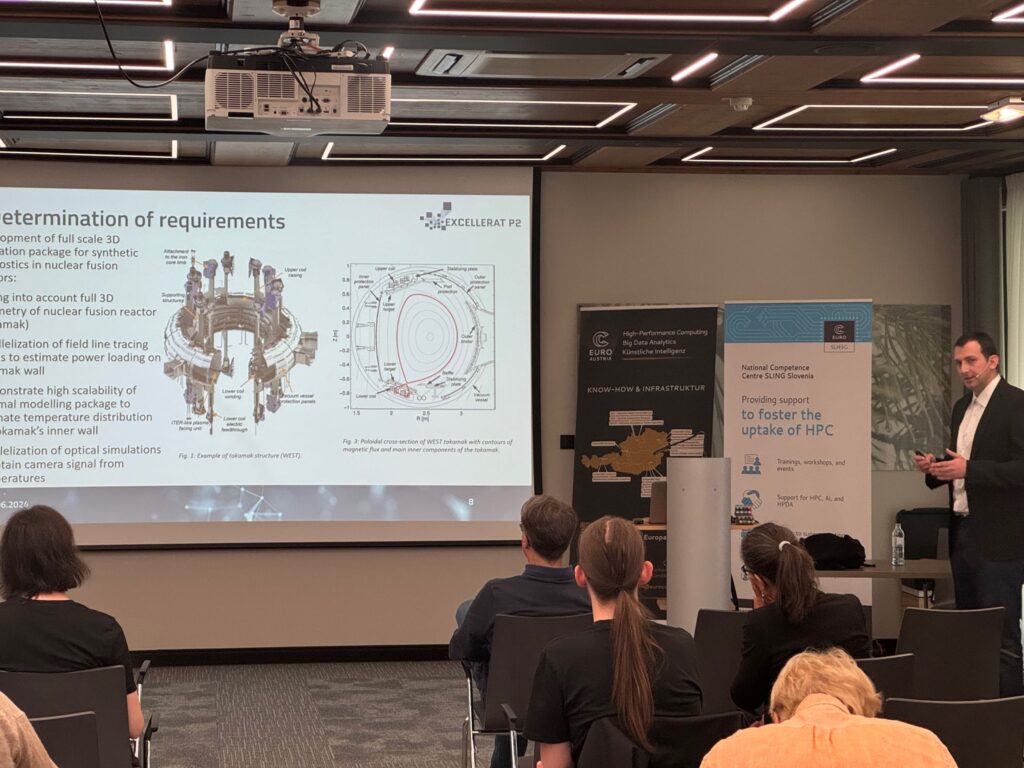Insights from the Austrian-Slovenian HPC Meeting 2024

The Austrian-Slovenian HPC Meeting (ASHPC24) took place from June 10-13,
2024, in Grundlsee, Austria. This annual gathering has become a cornerstone for scientists and technicians in the high-performance computing (HPC) community, providing a platform to discuss the latest advancements and applications in HPC technology.
This year, ASHPC24 continued its tradition of fostering collaboration
between Austrian and Slovenian HPC experts, bringing together a diverse group of researchers, industry professionals, and academics. The conference
highlighted various aspects of HPC, including data management, data analytics, visualisation, and simulation-driven design, all of which are crucial for tackling complex engineering challenges.
Among the notable contributions was the presentation by EXCELLERAT
partners Tina C. Marc from Arctur d.o.o. and Matic Brank from the University of
Ljubljana’s LECAD. Their presentation, titled “Engineering Design and
Digital Twin of the First Wall of a Tokamak Fusion Reactor,” showcased an
innovative use case involving a 3D simulation of plasma deposition on a
tokamak’s first wall. This simulation helps in creating a digital twin,
providing a deeper understanding of the physical processes during fusion reactions and aiding in real-time control of these reactions.
The use case focuses on the tokamaks WEST (IRFM CEA Cadarache) and ITER,
employing advanced HPC techniques to simulate the optical performance of IR
cameras, predict heat fluxes, and accurately interpret camera signals. The
ultimate goal is to enhance the safety and efficiency of nuclear fusion
reactors by preventing damage through real-time monitoring and control.
EXCELLERAT’s contribution to ASHPC24 was multifaceted:
-Main Presentation: Delivered by Tina C. Marc and Matic Brank, providing in-depth insights into their research.
-Pitch Session: Conducted by Tina C. Marc, highlighting key aspects of their work to a broad audience.
-Poster Session: Showcasing detailed visual representations of their findings and methodologies.
The Austrian-Slovenian HPC Meeting continues to be a vital event for the
HPC community, offering a platform for sharing knowledge, fostering
collaborations, and advancing the field of high-performance computing. We look forward to the innovations and follow-up projects that will emerge from this year’s discussions and presentations.

